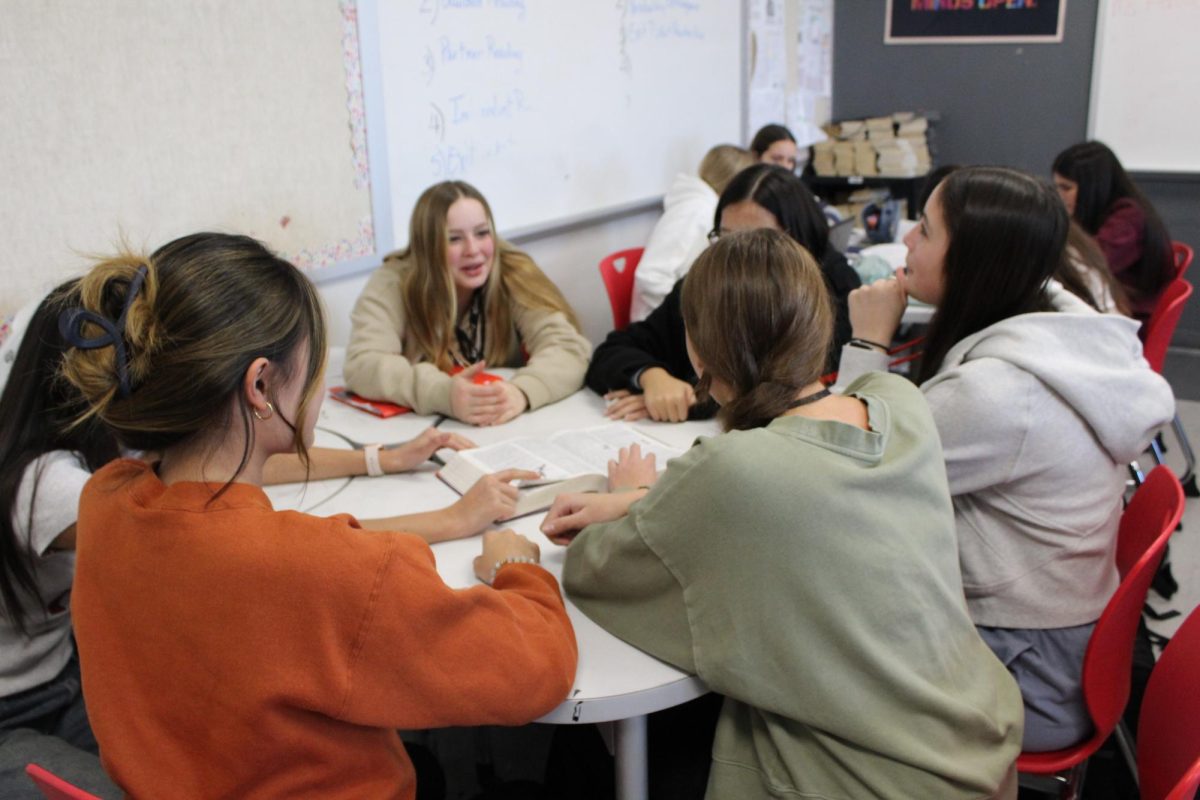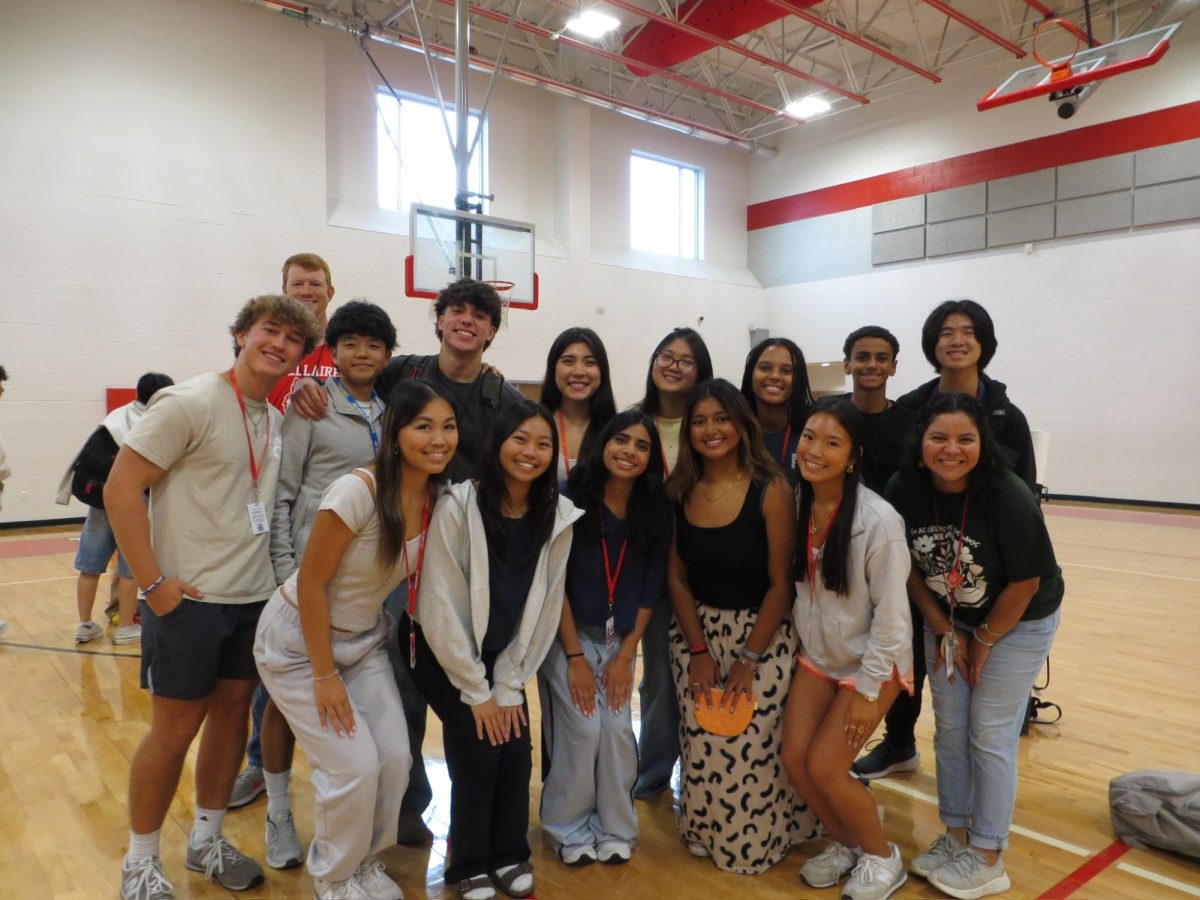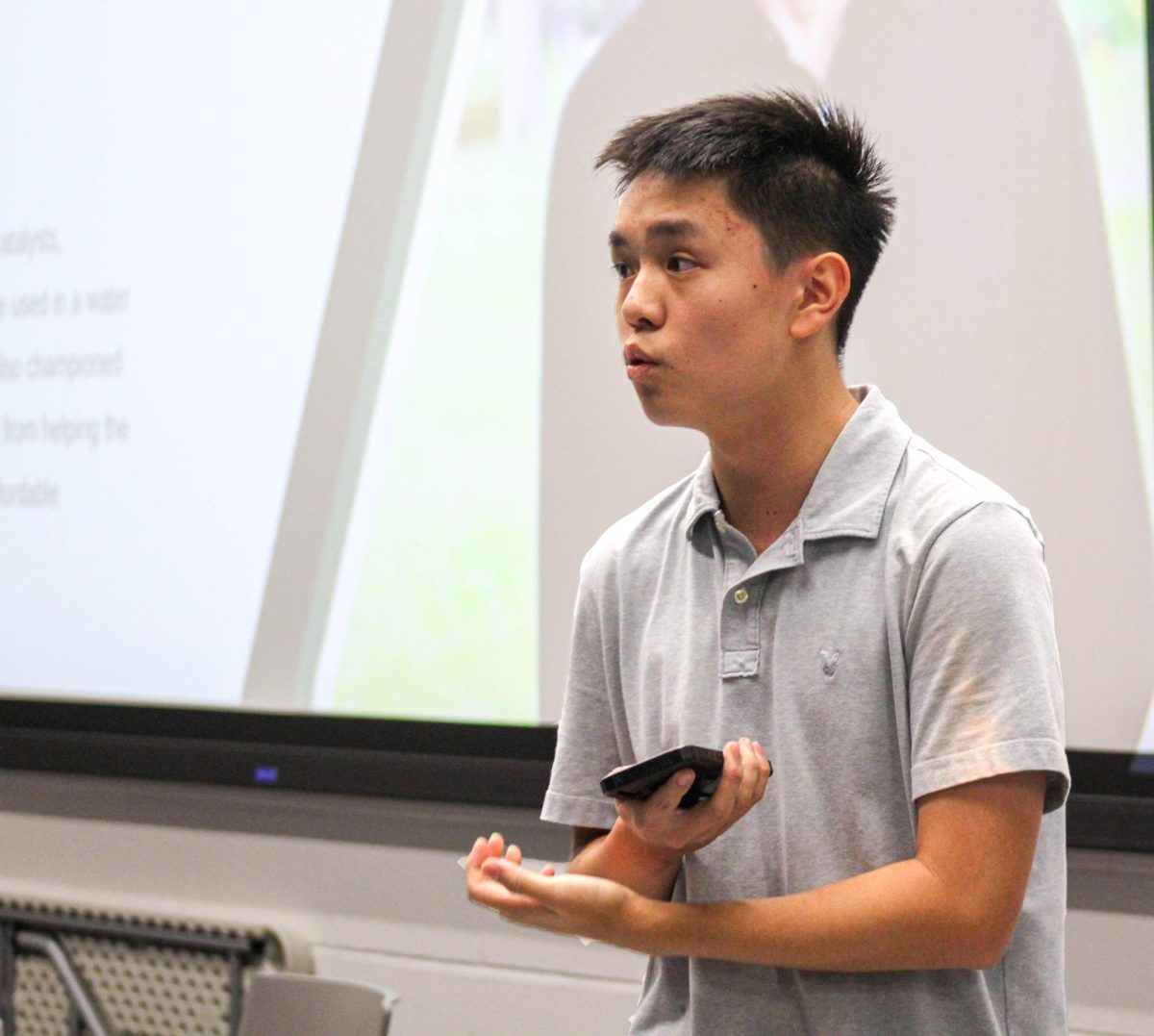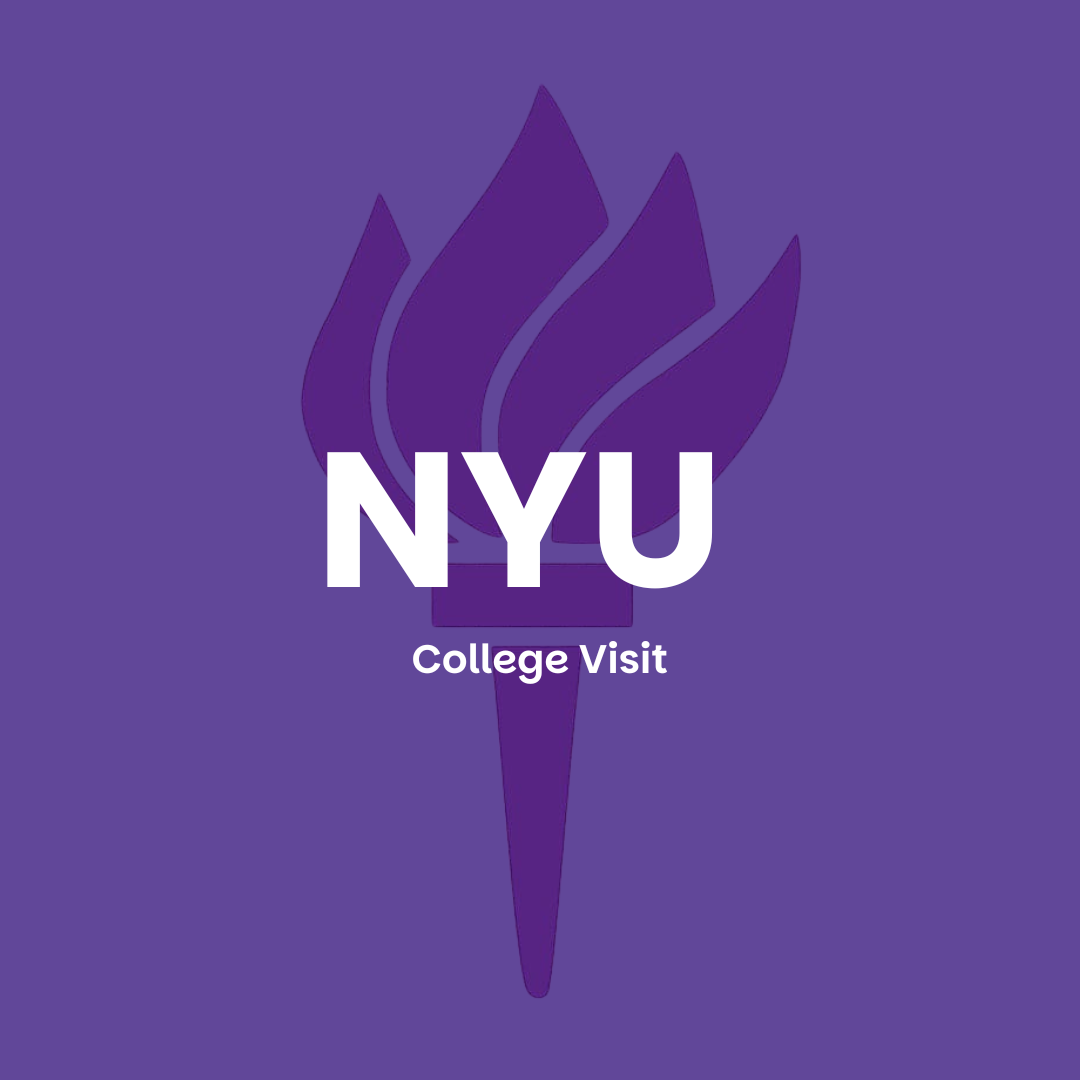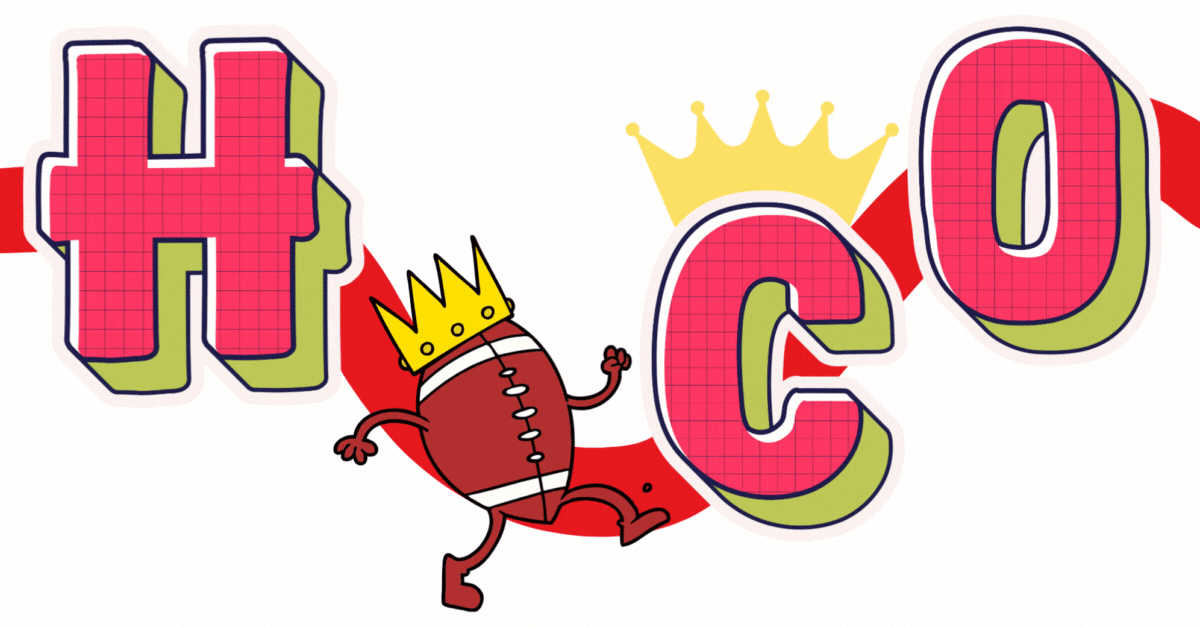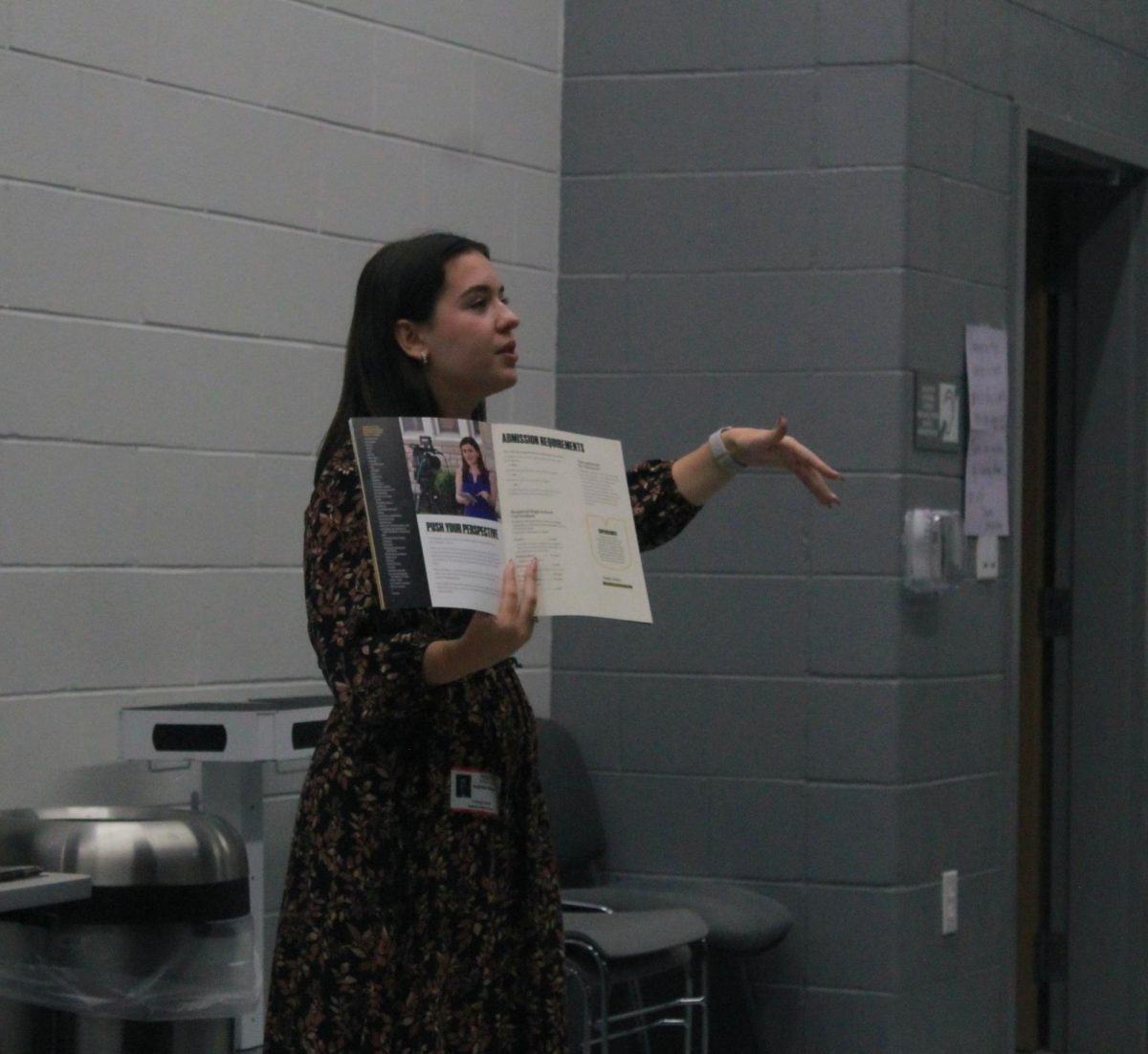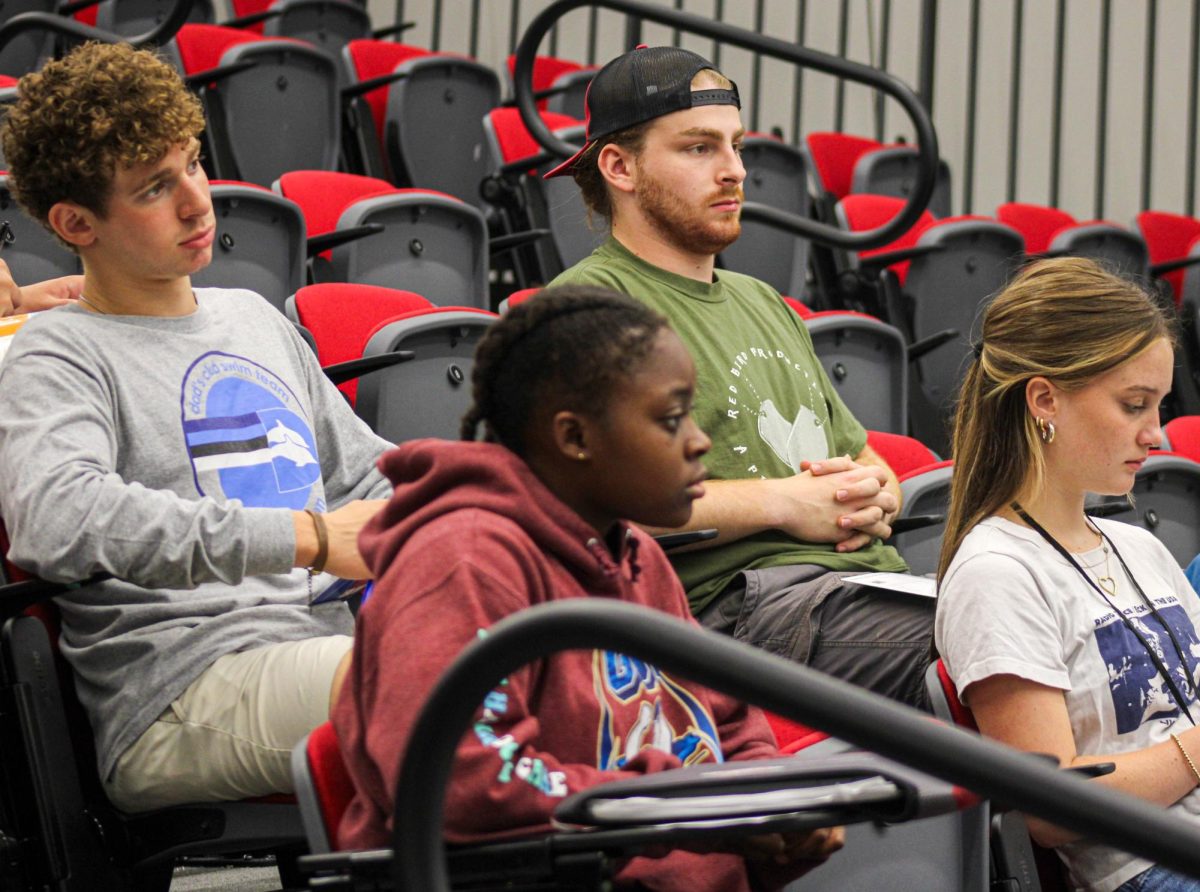With finals coming up the week before winter break, students are looking to hang out with friends and family and get in the holiday spirit.
But before that, they have to go through finals.
Along with finals come different study strategies. Students like junior Madeline Morrissette find that taking detailed handwritten notes helps significantly in the review process.
“Personally, I feel if I’m writing something down my brain is processing it more,” Morrissette said. “That’s just how I process information best.”
In addition to note-taking, freshman Ojas Raiter likes creating and solving practice problems to help him memorize and apply key concepts.
“I feel like if you look for your own questions, you could pick and choose the hard questions, so it’s more tailored towards you,” Raiter said.
Solely looking over notes or reviews can be effective, but Morrisette says a balance between both methods helps her study the best.
“If I’m looking at a question, and I have no clue what’s going on, I obviously need to review my content,” Morrissette said. “So I definitely like to get a basic overview of my content before I dive into questions.”
While studying is important to score well on finals, spending hours stuck glossing over notes makes room for distraction. Chemistry teacher Cydney Tinsley recommends a strategy to focus on reading notes.
“A tip that can help you focus, especially if there’s a lot of reading involved, is to actively underline or highlight with your pen,” Tinsley said. “By actively underlining or highlighting, you’re forcing your brain to only focus on reading, and it has less of a chance to be able to wander off.”
One of the most popular methods to stay on task during long study sessions is to listen to music. While studying this way is a personal choice, Tinsley suggests not listening to music with lyrics.
“I would suggest a non-distracting type of music, like instrumental or classical music, so you’re not tempted to rock along to your favorite song and start anticipating new lyrics,” Tinsley said. “Your mind can stay focused and [go] into a space where there’s not as many distractions.”
Another study strategy Morrissette has for focusing is to take breaks.
“If I tell myself, ‘I’m gonna study math right now for half an hour,’ I can set a timer and put my phone away and then I get a break after,” Morrissette said. “I think if you tell yourself, ‘I’m going to stay here and study for two hours,’ you’re going to get drained immediately and just want to go on your phone.”
Raiter says that breaks have the opposite effect on him.
“Whenever I take a break, the break just keeps going,” Raiter said. “I can’t really find myself to stop taking the break. But when I’m in my four-hour study session, I just keep going, and there’s no real issue.”
Oftentimes, taking care of one’s mental health can be crucial to performing well during the mid-terms. For Morrissette, sleep is vital to her performance.
“I think our brains work better and process information better when we’re not tired,” Morrissette said. “I know getting the perfect eight hours isn’t always possible, but I always try to get at least six or seven hours.”
The study environment can also affect the amount of retained information. A loud chaotic place may be disruptive or distracting towards some people. Tinsley suggests not studying in a personal room.
“A lot of students like to study in their room, you have all the distractions in your room,” Tinsley said. “That’s your space, all your [stuff] is there. A kitchen table might be a better spot. You have less things to look at.”
Although study groups are a popular way to have fun while studying, Morrissette finds that studying with a large number of people can hurt studying.
“If it’s a large group, people can get off task really easily, since you can get distracted really easily,” Morrissette said. “If I’m studying, I need to be studying. I don’t want to talk about other random things that are going on.”
However, Raiter finds that if done correctly, study groups can be helpful to strengthen one’s grasp on a topic.
“I use something called Feynman’s Technique, which is basically teaching other people,” Raiter said. “I might hop on a call and I’ll try teaching some of my friends what I’ve been doing, and if they understand it, that means I understand it well enough.”
In addition to calming techniques, strategies can be used during tests to help recall studied concepts.
“If you can, write down everything you know on the test paper, because the more you brain dump on that, the more concepts that might come to you,” Raiter said.
Even after studying, anxiety can be a massive problem during a test when trying to stay still and think about the questions. Anxiety has been shown to decrease test results and mess with memory. Tinsley recommends taking deep breaths before the test.
“Deep breaths calm your body and your mind and can help you refocus,” Tinsley said. “If you’re starting to feel overwhelmed or really anxious, pausing, putting down the pencil, closing your eyes [and taking] slow deep breaths resets your body.”
However, at the end of the day, Tinsley believes that people shouldn’t put too much stress into finals.
“Be graceful with yourself,” Tinsley said. “Everyone will have at least one bad test. Everyone’s gonna have a bad day. That happens. It doesn’t make or break you.”
Finals start on Dec. 17 and end on Dec. 20. A link to the finals schedule can be found on the Bellaire High School website.


